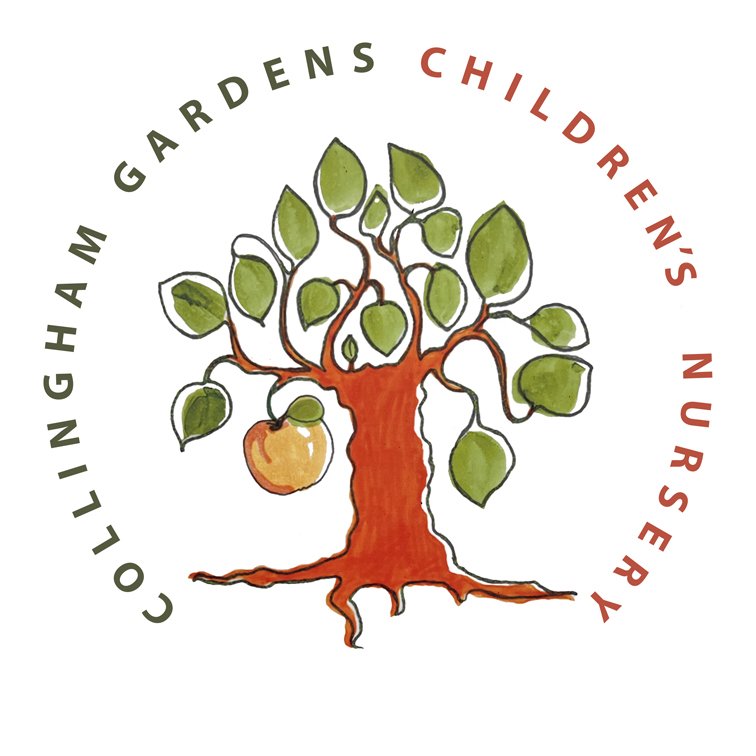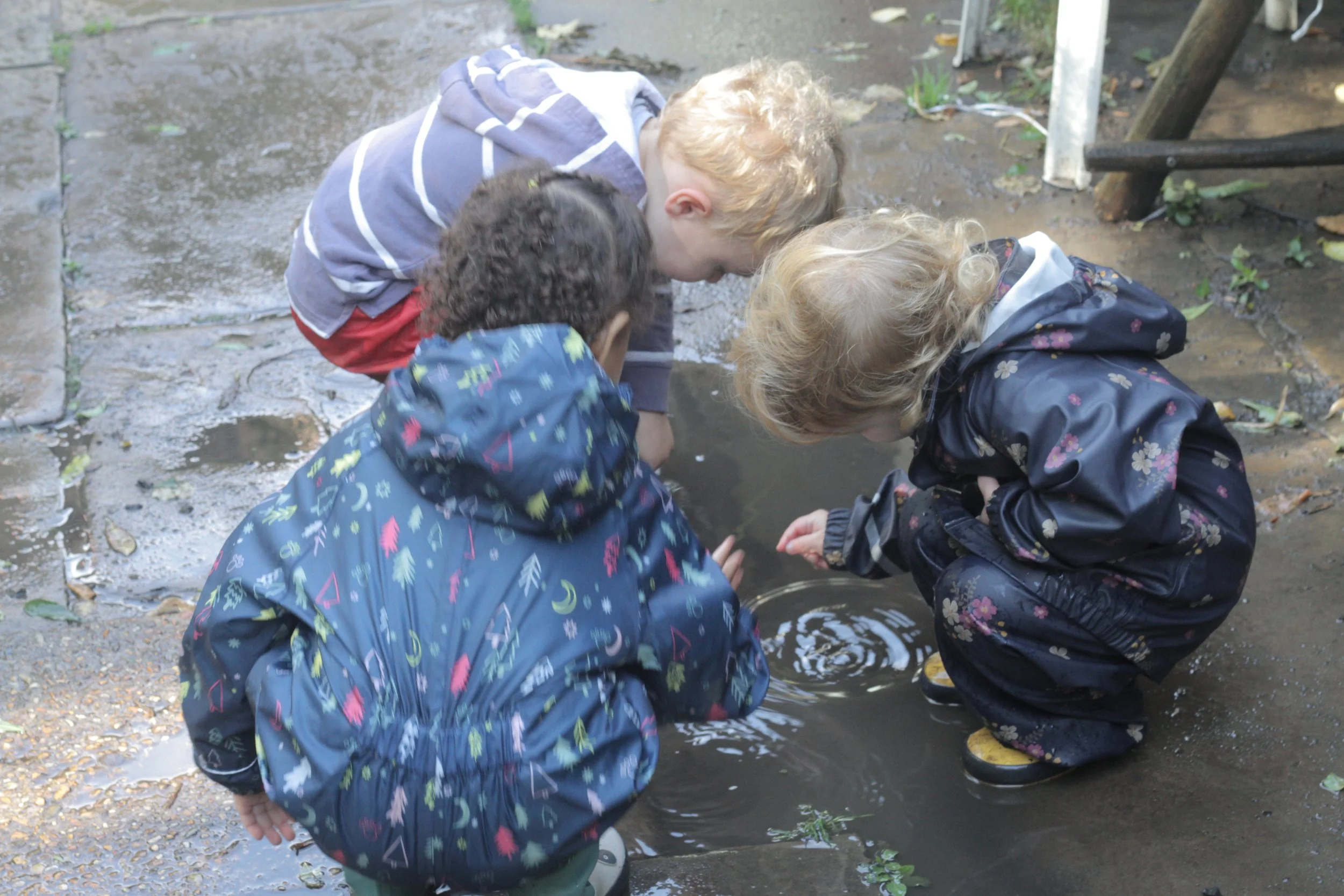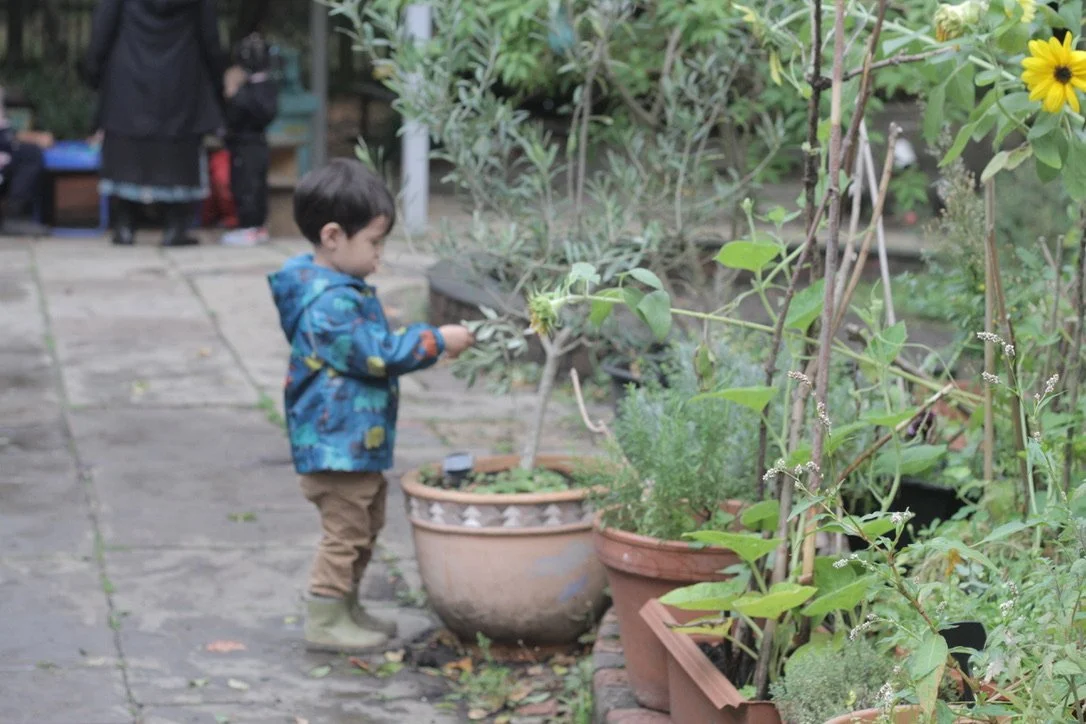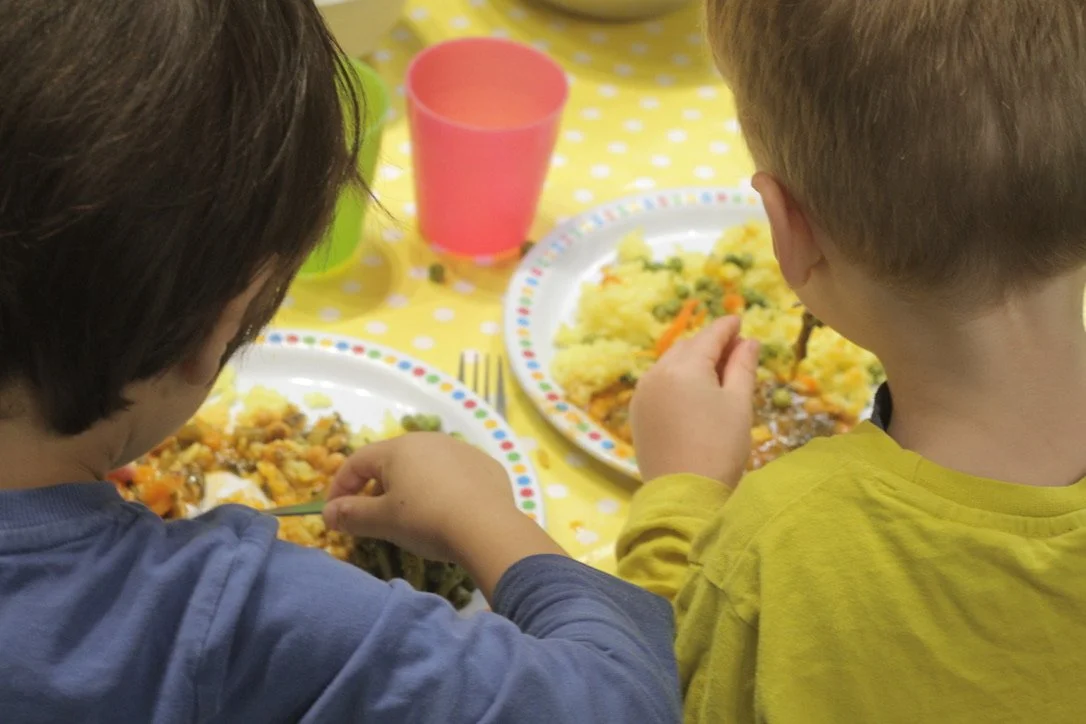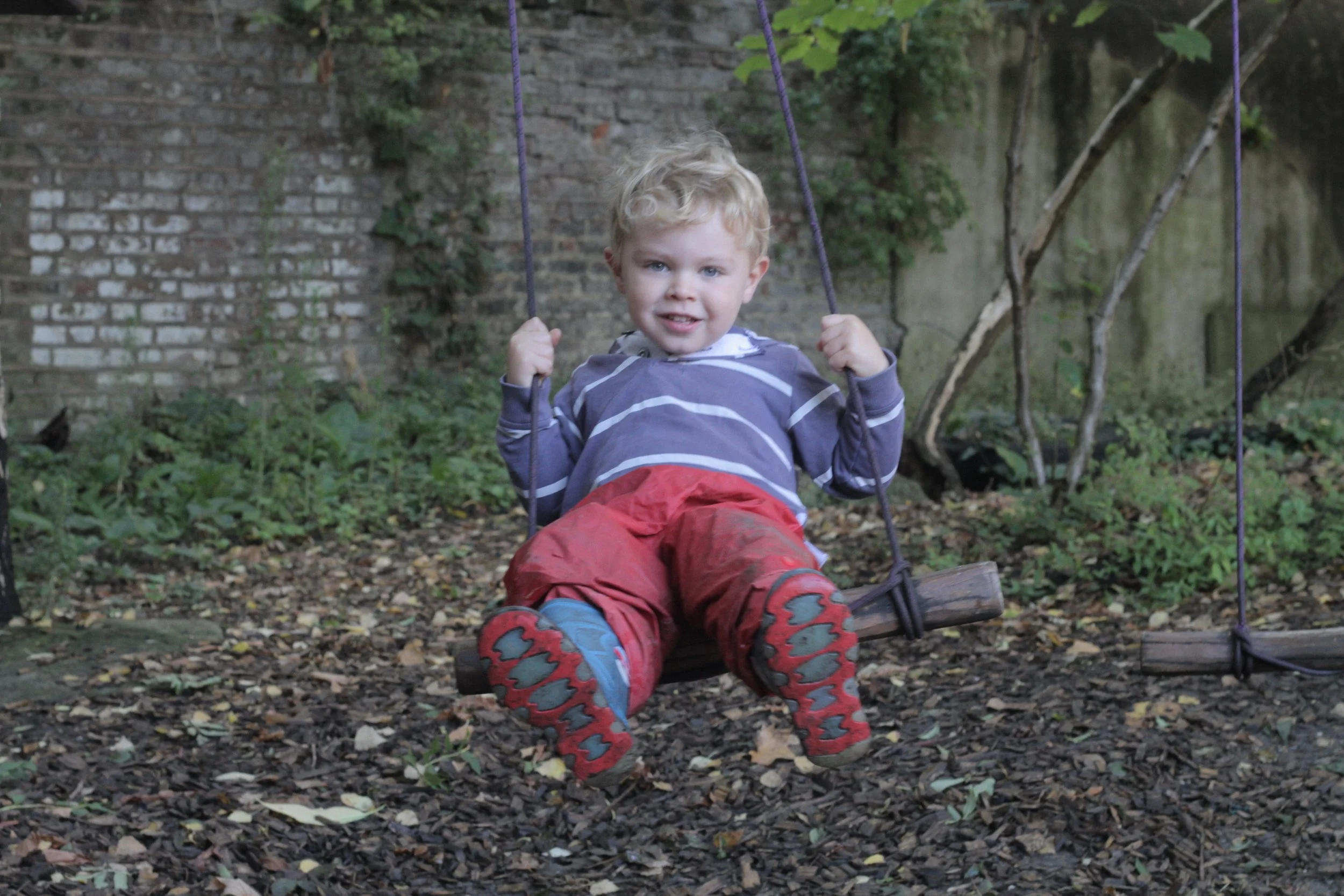
Nursery activities
Vegetable and flower growing;
Observing and watching wildlife – and providing food and habitats for them;
Designing and constructing obstacle courses;
Climbing trees, Montessori climbing ladders, and play structures;
Using the tree house, playhouses, tents, and making dens;
Exploring the digging patch through making mud pies, planting, and digging;
Playing with trollies, wheelbarrows, balls, balance bikes, and hoops;
Reading books – in groups, solo, and one-to-one;
Mark-making – drawing and early writing;
Cooking and food prep;
Dance, music, and yoga with staff;
Water play – discovering volume, capacity, pouring, sinking, floating, bubbles, temperature, etc;
Sand play – wet and dry, weights, moulding;
Playdough – making objects, pretend cooking, exploring differing textures, making the dough;
Sorting toys, jigsaws, and board games – introducing numbers and sets, classifying;
Role play – home corner, mud kitchen, dens, dolls house, animals, and small world toys;
Art activities – painting, modelling, junk modelling, drawing, chalking – all on tables, the floor or outdoors.
Development
There is a structured but flexible settling-in routine for every new child, usually involving one week of a parent being either present or ‘on call’ and gradually extending their absence from the setting. We recognise that each child will settle differently, and so aim to make it as relaxed and easy as possible.
Members of staff are responsible for keeping records on each child for whom they are a ‘key person’. Photographs and written observations are kept monthly in the child’s portfolio, which will be given to the family when the child leaves. There is also a Camden profile, a book recording the child’s progress, which goes on to the child’s school.
Twice a year, formal ‘LINKS’ meetings are held between parents/carers and their child’s key person, with a written report on the child’s progress and targets for the child’s further development. There are always opportunities for parents/carers to meet with the key person at other times.
Any child with special educational needs will have more regular meetings. The nursery welcomes all children regardless of any special needs, and an appropriate curriculum will be put into place for them, with input from outside agencies and the family. The Special Educational Needs coordinator will work with the keyworker and the parents to develop Individual Education Plans for any child with SEN.
As the nursery is small, the manager grows to know all the children individually and is able to meet with a child’s future school teachers whenever a child may need particular support with the transition from nursery into primary school. The manager is always available to answer queries in person or via e-mail or phone. We understand how difficult it is to place your child in a nursery, and trust they are receiving the best care and education, and we wish to keep all parents informed and reassured at all times. Queries and complaints are dealt with quickly. Complaints can be referred to the Management Committee.
